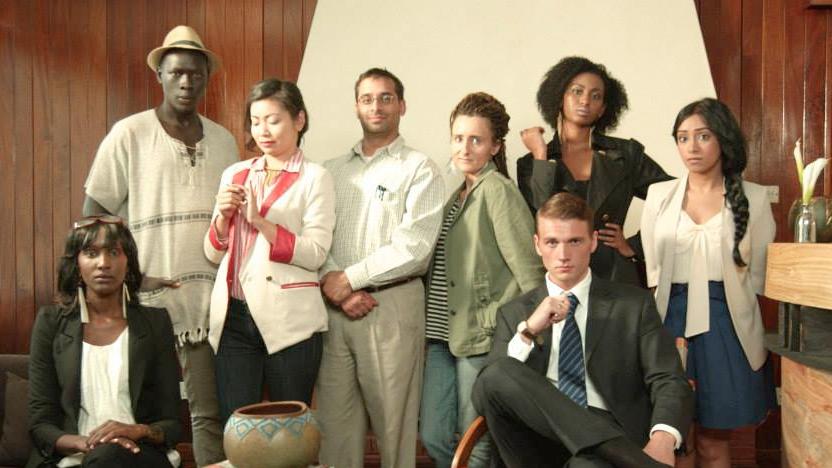In Kenya’s twist on ‘The Office,’ a fictional aid organization gets skewered
“The Samaritans”
If you are a fan of the US version of "The Office," then you'll know what I mean when I say Aid for Aid is the Dunder Mifflin of Africa.
No, it's not a fictitious paper supply company, like Dunder Mifflin in The Office. It's an aid organization.
Well, actually it's not that either.
It's a fictitious aid organization — and it's the setting for a Kenyan mockumentary called "The Samaritans."
The comedy series focuses on a non-governmental organization (NGO) in Nairobi. It's run by a fictional country team leader named Scott Bartley.
"I've been appointed by head office as your new country director for Kenya," says Bartley in a clip from the series. "Some of you I've had the pleasure of meeting. And many of you will be wondering who I banged to get this position. To which I say, regional director Candice Heatherington and I are just friends."
Bartley's character comes from the imagination of Hussein Kurji. His production company created the half-hour online comedy show highlighting the inner workings of the Nairobi office of Aid for Aid.
"It means nothing," Kurji says of the charity's name. "It's great. It matches what the organization does, which is nothing."
Kurji was insired by the American series "The Office."
"I looked at different ways that I could explore comedy and the NGO sector kept popping up. When I initially thought of the idea, I thought of it as NGO plus 'The Office.'"
It may be a comedy, but there's an element of truth to it. In Kenya alone, there are more than 4,000 non-governmental organizations.
Jessica Alexander, a former aid worker, wrote about her experience in her book "Chasing Chaos: My Decade In and Out of Humanitarian Aid."
"I used to come back from a mission and get everything from 'Does everyone that you work with have dreadlocks?' Or, 'you are such an amazing person. You are just like Angelina Jolie,'" says Alexander. "These are a lot of the ways that people characterize aid workers, and I think what this show is trying to highlight is these funny characteristics that people assign to aid workers who do work overseas."
Creator Hussein Kurji's comedy plays aid workers for laughs — as inept bureaucrats trying to write as many useless reports as possible, all under the guise of "saving" Africa.
But in the series, Aid for Aid has a rival group that actually has good governance and is accountable to its stakeholders.
And producer Kurji says that "The Samaritans" actually benefited from aid organizations. Kurji's production company used Kickstarter to raise money to produce the show, and a charitable organization liked the concept and donated money to the project.
The irony is not lost on Kurji.
"I love it. That's the kind of irony we live by," Kurji says. "We're critiquing certain aspects of [the NGO] world, not the entire world — because it's not all negative, right? Like any industry, there are negatives and positives. But positives don't make for good comedy."
We want to hear your feedback so we can keep improving our website, theworld.org. Please fill out this quick survey and let us know your thoughts (your answers will be anonymous). Thanks for your time!
